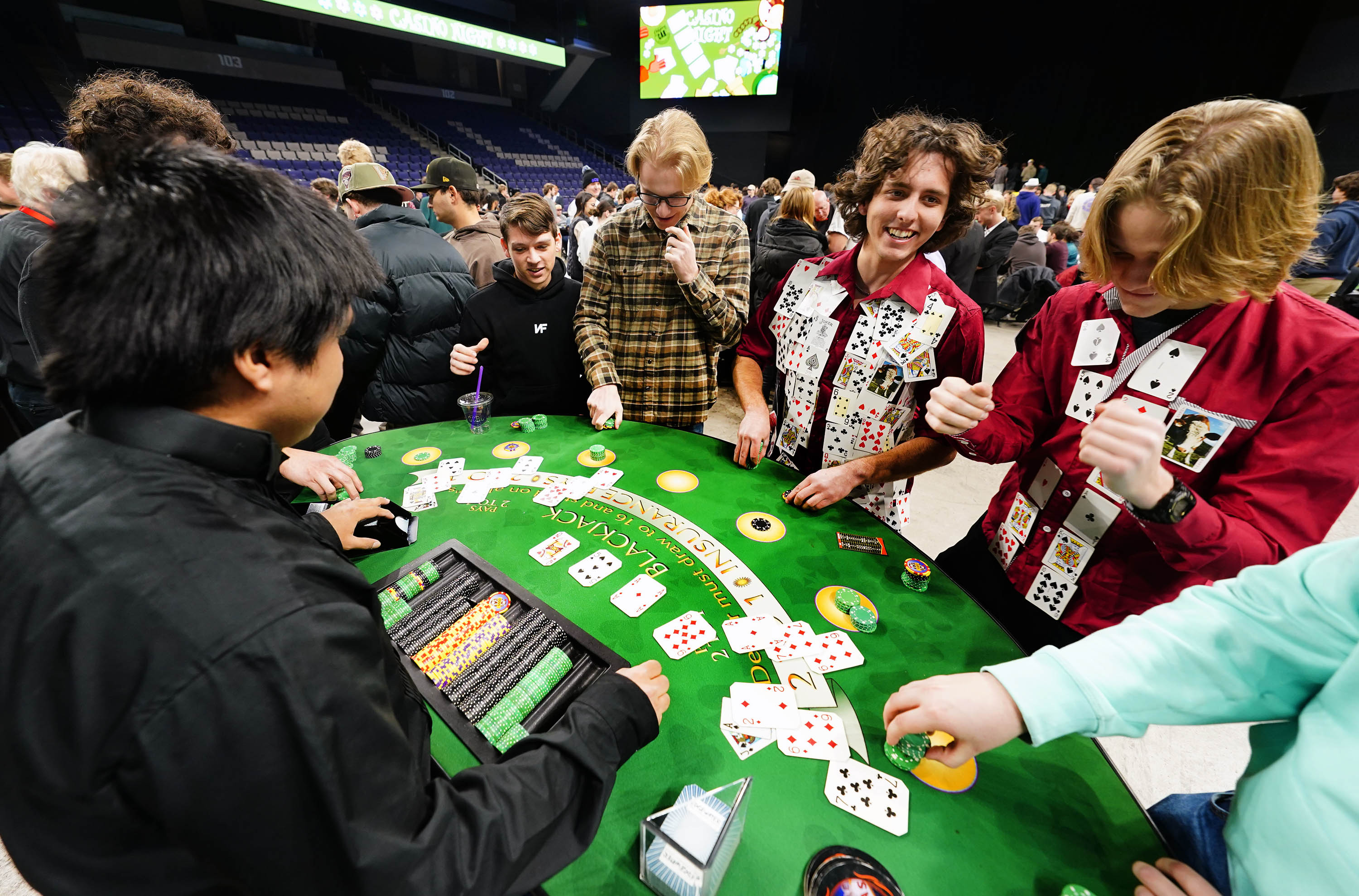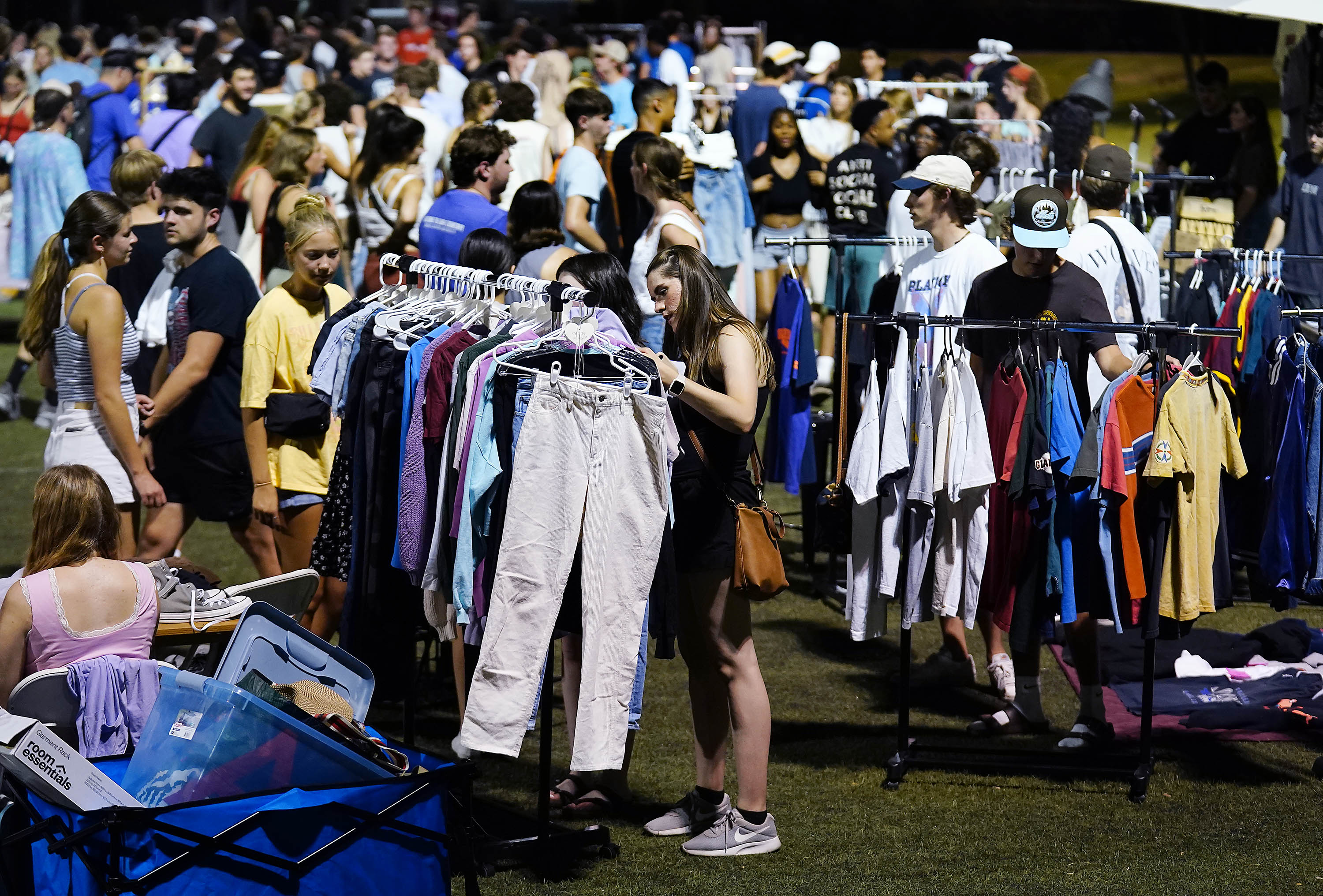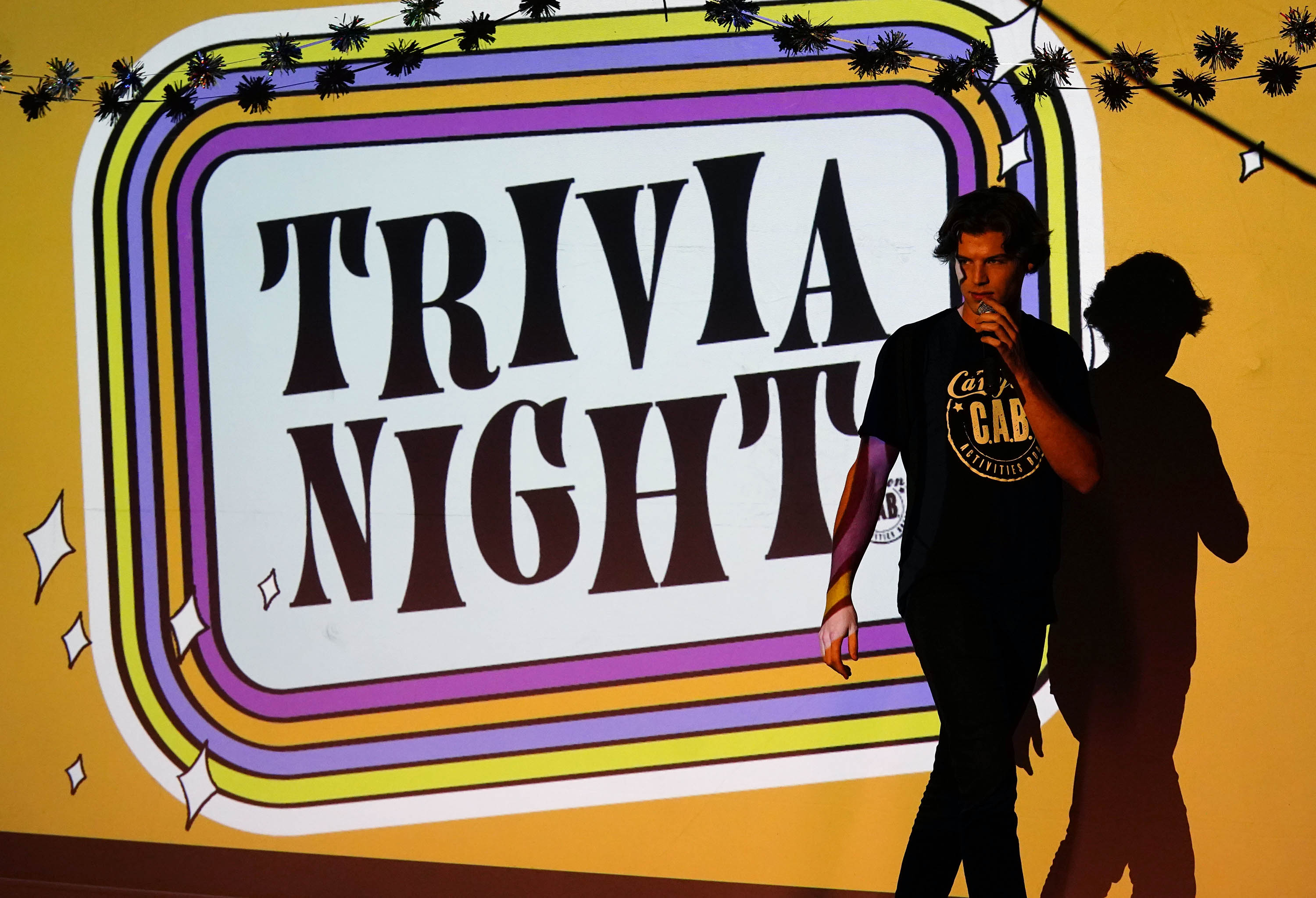Story by Karen Fernau
Photos by Ralph Freso
GCU News Bureau
When George and Ann Hyduchak learned that their 5-year-old son had been diagnosed with cancer, they doubled over in fear.

They'd thought that Jace, their third of four boys, simply had a childhood bug, not a deadly disease. Upon hearing the dreaded news, George allowed himself 30 minutes to cry, a condensed blast of heartache before tackling the practicalities of battling acute lymphocytic leukemia (ALL), a cancer of the blood and marrow.
There were treatment decisions to be made, medical bills to pay. There were three other children — from seven months to 10 years old — to raise.
“If it had been me, I might have gone into denial, but not with my child. Denial would prevent me from doing my job, protecting him from harm,” George said.
About the raceWhat: Seventh annual Grand Canyon University Foundation Run to Fight Children’s Cancer When: Saturday, March 11. Starting time 7 a.m. for 10K, 7:45 a.m. 5K, 9 a.m. Cancer Survivors Walk Where: Grand Canyon University, 3300 W. Camelback Road, Phoenix Cost: $25 for 5K and $35 for 10K through Jan. 31, $30-40 through Feb. 28 and $35-45 through March 11. Cancer Survivors Walk is free and open to cancer survivors. Registration: Go to runtofightcancer.com. Benefit: All proceeds from the run are spent locally by Phoenix Children’s Hospital and Children’s Cancer Network. |
Job well done. Today, after 65 days and 58 nights in the hospital, seven trips to the emergency room and 43-and-counting trips to a treatment center, Jace is cancer free and strong enough to be the race starter for the 2017 Grand Canyon University Foundation Run to Fight Children’s Cancer.
George’s first task after Jace’s diagnosis was asking the Ahwatukee Foothills Family YMCA for a refund of his son’s $100 basketball registration fee.
“We didn’t know what kind of medical bills we would be facing, but I knew I needed everything we had to be able to afford the best care and treatment,” George said.
Two strangers at the front desk returned the money on the spot. No questions asked.
A few hours later, people from the Y showed up at the Hyduchaks’ Phoenix home with a basket of sports paraphernalia, from a Suns jersey to a water bottle.
“We were so touched by his request that we wanted to do something nice for the family,” said Sandra Banks, the YMCA’s executive director. “We gave what we could.”
And so began an avalanche of giving.
Family from Scottsdale to Pennsylvania mobilized to care for the Hyduchaks' other three sons, Bryce, Caden and Brig, which allowed both parents to live around the clock at Phoenix Children’s Hospital (PCH).
Friends and neighbors delivered home-cooked meal after home-cooked meal and shuttled the boys to school. Children of Hope Preschool in Phoenix ripped up Jace’s tuition check. His teachers sat bedside reading stories. Boy Scouts visited and played games. Local businesses helped organize a blood drive in Jace’s name.
“We began calling all those who helped our village our ‘special village,’” said Ann, a full-time mom and realtor with West USA.
And now the Hyduchaks are giving back.
“Looking back,” George said, “I can honestly say that our struggles were lessened thanks to the overwhelming support of our family, friends and community.”

The road to Run to Fight
One January night in 2016 after Jace fell asleep, Ann fired up the computer in his PCH hospital room to search for a payback cause.
“I thought we had enough to deal with, but Ann was determined to start giving back for all we had received,” George said.
Ann quickly discovered Run to Fight Children’s Cancer.
She clicked on the site and realized the run was a match made in heaven.
“Their goals were our goals,” she said.
In six years, Run to Fight has raised more than $450,000 for PCH and its research into cancer cures and for Children’s Cancer Network (CCN), a Chandler-based nonprofit that supports children with cancer and their families.
This year’s race, scheduled for Saturday, March 11, is expected to hit a milestone – a half-million dollars raised to do what Jace calls “kicking cancer in the butt.”
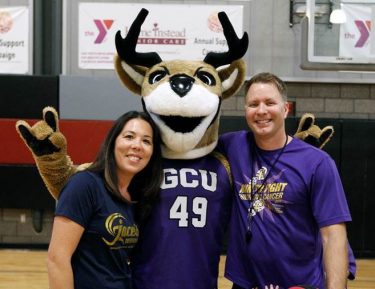
During his standoff against ALL, Ann and George became painfully aware of the support patients and their families need to survive grueling rounds of chemotherapy, surgeries, setbacks, blood transfusions and bone marrow transplants.
“I loved that the money goes directly to fight the disease and help the families of kids with cancer,” she said. “We couldn’t have made it without PCH and CCN.”
An added plus: George and Ann are runners.
After selecting Run to Fight 2016 as their give-back cause, Ann posted a Facebook call for others to join them. In no time at all, the Hyduchaks assembled Jace’s Defenders, the largest team ever to run the race — 127 strong.
This year, 6-year-old Jace will be more than just a runner on the returning mega-team. As the race starter, he's the cancer survivor chosen to blow the horn on for thousands of runners at the starting lines for the 10K and 5K races on and around the GCU campus.
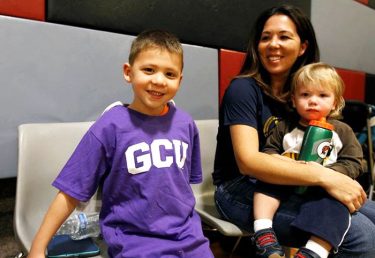
Jace joins an illustrious group of childhood cancer survivors and race starters: Emma Kerr, Mia Bryant, Jack Welch, Cooper Gokee, Grace Kostyk and Olivia Baumgardner. All are expected to be at this year’s race.
For George, a major appeal of Run to Fight is its commitment to raise money for all childhood cancers, not just ALL, a cancer with an 85 percent survival rate for children.
“We would love to wipe out ALL, but it wasn’t the type of cancer that rocked our world,” he said. “It was that our 5-year-old had cancer. Our cause is to find a cure for every pediatric cancer, and that’s what this race is all about.”
Jace's cancer story
The telltale signs showed up during the 2015 Thanksgiving weekend. Jace mysteriously began bruising. The boy partial to superheroes and fast breaks on the basketball court was listless and his appetite was flat.
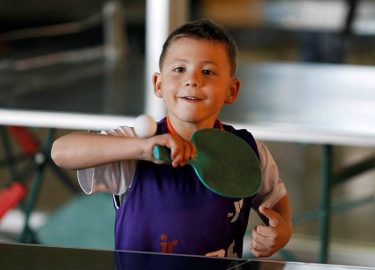
“He’s a rough-and-tumble kid and my best eater, so we were worried but at first not alarmed,” Ann said.
After three nights of bloody noses, they took Jace to their family doctor, who ordered blood tests and sent them home. They’ll always remember the date: Nov. 30.
The doctor called at 8 o’clock that same night with the knee-buckling news: Jace had cancer and needed to go to PCH immediately for a life-saving blood transfusion.
“We’ve learned that it’s never good news when a doctor calls at night,” George said.
Ann called her parents to watch the other boys, and the couple arrived at PCH by 10 p.m.
Jace’s low hemoglobin levels made inserting the IV difficult. It was the first of a long line of medical hurdles, from blasts of chemotherapy to a series of aggressive infections.
Always a kid who dreaded taking pills and getting poked with needles, Jace fought cancer treatment with the ferociousness of a scared child.
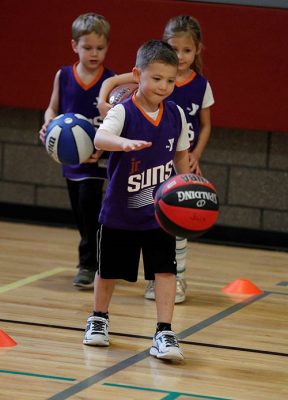
George learned to hug Jace into stillness while Ann administered the shots. Coaxing Jace to swallow a single pill often took two hours.
“Jace was scared so much of the time,” Ann said. “He was in pain. His legs hurt so bad he wouldn’t walk, and the doctors warned against atrophy. He didn’t eat and fought taking morphine for the pain.”
George talks of Jace’s cancer in precise, clinical detail — hemoglobin 12.3, platelets 443. That's not surprising for a technical support engineer for Cymer, a San Diego-based supplier of deep ultraviolet light for semiconductor chips.
But when he talks about “the rough spots,” George sounds like a dad with his heart in his hands. His voice wavers. He swallows tears.
“It’s been hard for us not to cry, but we didn’t want to cry in front of Jace or the other boys,” he said. “We are the two people who always make them feel safe, and we were not going to let cancer change that.”
Today, Jace and his full head of hair are in kindergarten and on a YMCA basketball team coached by George.
Jace pushes Brig around the house on a skateboard and jumps on the backyard trampoline as if he wants to be the first kid to walk on the moon.
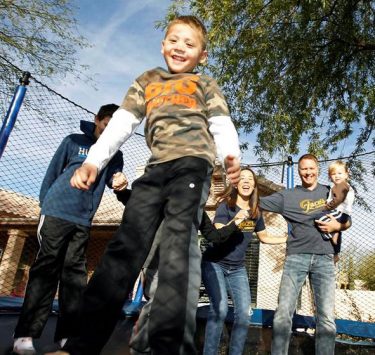
Although cancer free, he’s still tethered to maintenance doses of chemotherapy for another two years.
“We are now in the home stretch, albeit a lengthy one,” George said. “When this is all over, you can bet we will be throwing a huge celebration party.”
Run to Fight money at work
The money raised by Run to Fight is split evenly between PCH’s research into treatment and cures and CCN’s programs for families blindsided by the cost of fighting cancer.
Patti Luttrell, director of CCN, knows first-hand the strain of long, expensive cancer treatments.
Luttrell’s 28-year-old son, Jeff, was diagnosed with acute lymphoblastic leukemia when he was 5. He has endured rounds of chemotherapy and radiation along with a bone marrow transplant to treat his cancer and recurrences. Jeff, a graphic designer and graduate of The Art Institute of Phoenix, is currently battling a recurring oral cancer.
Luttrell, a former nursing professor at GCU, and her husband, Steve, had insurance coverage, the financial wherewithal and a support network to battle the disease.
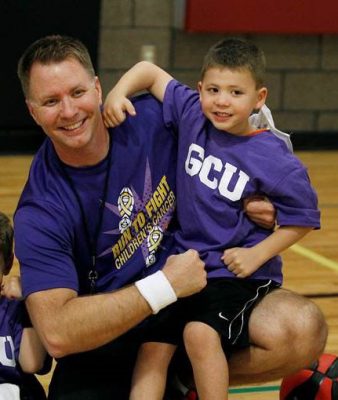
But while in Tucson nearly two decades ago for Jeff’s bone marrow transplant, the Luttrells learned others were not as fortunate. A child in a same cancer ward died, and the family’s gas tank and bank account were empty.
That was 2004, the year the Luttrells, along with daughter Jenny, created CCN, which has grown to help nearly 650 families a year.
“For many families, cancer brings financial disaster. We help with the expenses insurance doesn’t cover,” Luttrell said.
The lion’s share of their money, about $70,000 a year, is given in gas and food gift cards. Nearly 200 volunteers also lend a hand.
For the first time, CCN last year allocated the Run to Fight proceeds to fund a part-time therapist at PCH. The new therapist has dramatically cut the 90-day wait for families to receive counseling.
“Now families can get help when they need it most,” Luttrell said.
Another new program — Honoring Our Peers Everyday (HOPE) — helps children with cancer return to school by educating their peers about cancer, the leading cause of death in children.
The program explains why a child with cancer is bald and might look and act differently.
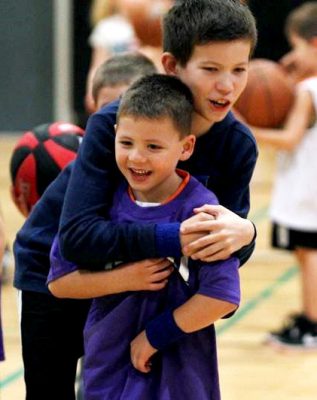
“The program demystifies cancer and the effects of the treatment. It makes a difference to children with cancer when they return to the classroom,” Luttrell said.
CCN also awards survivors of childhood cancer, their siblings or parents with scholarships.
Race day
In the 2016 Run to Fight Children’s Cancer, Jace almost was sidelined by an infected foot. He attended but was off kilter and far from the top of his game.
This year is different. A re-energized Jace will be at the starting line at the main entrance of GCU, running shoes on and horn in hand.
After his official race starter duties are over, he’ll join his family and Jace’s Defenders in the race.
Most likely, he’ll channel a favorite superhero, maybe Superman or Captain America, to help power him through the 5K.
To his parents, however, Jace’s cape-wearing idols pale in comparison to the real deal.
“Jace is the real superhero,” George said. “He is an amazing young man.”
● Run to Fight Children's Cancer will be the featured charity at Saturday’s GCU men's basketball game against Seattle University, and pediatric cancer survivors will be among the guests in attendance. Fans at GCU Arena also will be able to register for the race and can get a special in-person-only discount.
Contact Karen Fernau at (602) 639-8344 or [email protected].




















